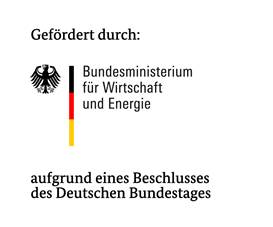
New joint project Trail² approved
Under the direction of the Chair of Building Physics, the project "Transformation in Rural Areas" (TRAIL) will continue until October 2022. The aim is to optimize the energy supply of small towns and villages with less than 10,000 inhabitants and to reduce energy costs with the help of a data-based online tool. The Weimar experts have around 777,000 euros in funding available for the dataTRAIL sub-project.
The energy transition affects almost all areas of life and is becoming increasingly important for smaller communities as well. Instead of relying on individual measures, climate protection measures are needed across sectors and locations. Often, however, small towns and villages in particular lack the necessary know-how as well as human and financial resources to be able to respond adequately to the climatic-ecological and energy challenges. This is where the joint project "Trail²" comes in:
With the online tool TRAIL, municipalities are provided with a tool that helps decision-makers to get started with the topic of energy system transformation in an uncomplicated way. Based on free geo and statistical data as well as information on funding programs, contact persons and basic technical data on the network structures, the tool visualizes the electricity and heat requirements of the communities. In the form of a map, possible energy saving potentials are revealed and concrete recommendations for action are suggested. To keep the obstacles as low as possible, TRAIL is programmed in such a way that actors in rural communities only need an up-to-date Internet browser and Internet access. Beyond that, no special software is required.
Comprehensive energy concept
In the first project phase, the tool has already been successfully tested for four model regions in Thuringia. In the second project phase, the municipalities of Großobringen, Neumark, Werther and Kahla will be joined by two more municipalities from Hesse and Bavaria. In addition, the quality and scope of the data - taking into account data protection - will be improved and energy and ecological strategies in the areas of energy, water and waste will be linked across sectors. "A prerequisite for the success of the energy turnaround is coordinated action at municipal and regional level, based on reliable data and an overarching goal vision," project manager Prof. Dr.-Ing. Conrad Völker, Professor of Building Physics at the Bauhaus University Weimar, is convinced.
A new approach is particularly necessary in the areas of energy-related renovation, heat supply and the integration of renewable energies, which until now have mostly been the responsibility of the individual. For example, joint energy supply concepts or cross-municipal commercial developments are in many cases more efficient than the multitude of individual investments in individual municipalities.
About the joint project
A total of seven partners are working together on an interdisciplinary basis in the "Trail²" research project: The project management is carried out by the Chair of Building Physics at the Bauhaus University in Weimar. In addition to Bauhaus University, the project is being scientifically supported by the Fraunhofer Institute for Applied Systems Technology in Ilmenau and the Institute for Energy Law at FSU in Jena. The processing of the GIS data and the calculation of the potential from renewable energies is mainly carried out by the JENA-GEOS®-Ingenieurbüro GmbH and ThINK - Thüringer Institut für Nachhaltigkeit und Klimaschutz GmbH in Jena. The Batix Software GmbH from Saalfeld is responsible for the programming of the software. And finally, quaas-urban planners from Weimar are active in the elaboration of the measures and the intensive contact with the model communities.
TRAIL2 - Transformation in rural areas 2
Subproject:
dataTRAIL: systemic and efficient data acquisition and processing of energetic building quality standards
Project Management Bauhaus-Universität Weimar:
Dipl.-Ing. Uwe Cämmerer-Seibel,
Faculty of Civil Engineering,
Chair of Building Physics
Duration:
1 November 2019 to 31 October 2022
Funded by BMWi
Subsidy amount: 776.638,00 Euro
Further information: www.trail-energie.de
